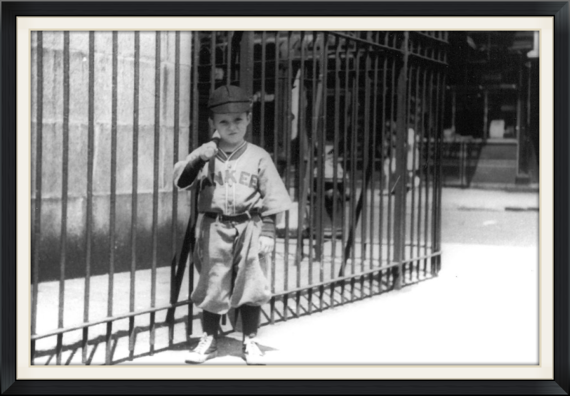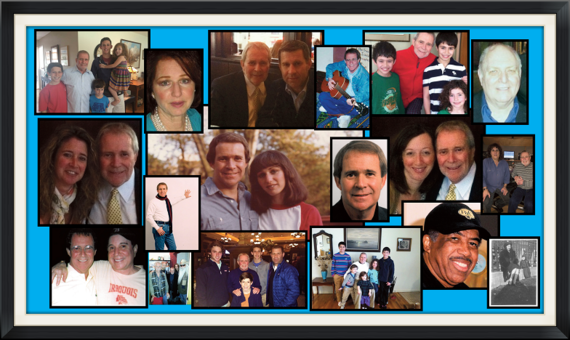How do you tell the story of a complex man in a complex business? The details speak for themselves.
Bobby Susser is a family man. He lives in N.Y. He earns his daily bread as a songwriter having sold over five million albums in his career. His success must be measured in equal parts to his obvious songwriting talents, his business acumen and his love of family.
Bobby Susser was born in 1942, the son of middle class Jewish parents and raised in Brooklyn. A Yankees fan all his life, Susser's career began in 1961 when he and his boyhood friend Paul Simon, raised $300 and decided to produce a song that Simon had written. Paul introduced Bobby to the process of "record production," having acquired a working knowledge from his father, Lou Simon, a bass player, who did a good deal of studio work. "I thought "producing" might be a nice way to make a living," says Mr. Susser. Their first song, "Motorcycle" recorded by local band The Triumphs charted on Billboard's Hot 100 record in 1962
Spurred on by that early success, Bobby Susser wrote and produced several Rhythm and Blues songs. In 1963, after writing some songs with Marty Cooper (The Triumphs), Bobby decided to produce a young singer, Florence Devore. "I needed an arranger, and called Paul to ask if he knew any arrangers? He suggested Horace Ott, who'd worked with the Shirelles, and Aretha Franklin. I met with Horace, and on his suggestion, I booked studio time at Beltone Studios, an excellent studio in N.Y. in 1961.
In 1963, Bobby wrote, produced, and sold the master of the song "Kiss Me Now", sung by Florence DeVore, to Phil Spector. The record was the first release on Spector's new Philles Records subsidiary label, Phi-Dan Records, and received a great deal of critical praise, and interest within the music industry. In 1976 Diana Ross recorded "Kiss Me Now "on her second eponymous album
For the next year, Susser worked with Spector, listening, and learning how to write, record and produce records. Spector would often say, ""When you write a song, repeat the interesting and simple line enough times, without it sounding boring." Or, as Susser later said himself, "Say it, and say it again."
"I listened and learned from the "The First Tycoon of Teen," and now when you listen to my songs you'll notice, I pay attention to the hook line," says Bobby. The following year Spector moved to LA and once again Susser found himself selling his songs in The Brill Building.
Over the course of his work with Phil, he made a number of contacts and good friends, one being Ellie Greenwich. By then she was a major songwriter, having had hits with songs like "Chapel of Love", "Leader of the Pack" and "Do Wah Diddy" Bobby and Ellie remained close friends until her death in 2009.
Also, he became friends with a successful publisher, named Al Gallico, who was responsible for songs such as, "Stand by Your Man" and "The Name Game". Al was like a father figure to Bobby. Bobby later that year met Don Costa who was arranging and producing records for Trini Lopez. "He recorded a song of mine, "Up To Now" with Trini Lopez. The reviews were very good, and we got lots of air play. But, although the record was a hit in a few small countries, the success that I thought I saw, didn't materialize," comments Susser.
From 1965 through 1973, he continued to write and produce songs for Florence DeVore, Sharon Redd and Trini Lopez. While Susser published most of his new songs, his older ones that he'd placed with other music publishers were beginning to get recorded, and show some activity. In 1971 Bobby Susser wrote and produced the controversial anti-drug song "Once You Understand" on Laurie Records, sung by studio group, Think. The song was a top 5 smash hit in England and Germany, and later was sampled and covered by rappers Biz Markie, Acen, 4 Hero, and De La Soul.
"Within weeks, I was in England, doing the David Frost Show," says Susser. "The record sold a total of 1.4 million copies, and I could feel things were changing for me. I received letters from teachers, parents, and clergyman, inviting me to play my song and talk to teens about my anti-drug message. I began to get lots of press."
Any Time of Day
His latest success inspired Susser and offered him a clearer direction and purpose. He started to write and produce songs and activities for children, ages 4 through 8. Collectively, everything he'd achieved since 1961, was steering Susser directly to his new home, Children's Music. He registered the name, Bobby Susser Songs for Children, and his new series was launched. Susser wrote and produced 5 albums for his children's series during the 1970s.
Early Childhood Development had become increasingly important to Susser, who subsequently earned his MA in Early Childhood Development from Columbia University in New York in 1987, and went to work producing and writing several best-selling Children's Albums. In the past 42 years, he's written and produced 25 albums, selling over five million kids albums, and writing and producing "I Have Songs in My Pocket" a kids album, sung by legendary singer and national treasure, Ben E King (Drifters)
Bobby Susser has been awarded over 45 awards during his long career, including 6 Parent's Choice Awards, the Distinguished Alumni Award, from Teacher's College,Columbia University, and in 2015 was honored at the Josephine Foundation's annual gala dinner, for his lifetime of work.
In a recent interview Susser, talks about his love of children's music, and what he sees happening to kids' music in the future. Here are his answers.
1) How do you choose to write a specific song for children?
Susser: The songs you choose to play in class or at home should have simple lyrics that are to the point, have positive messages, and melodies that are easy to sing for all children. Whether its colors, numbers, self-expression, self-awareness, socialization, communication, or any valid concept you may be attempting to introduce to children through song, the performance must be believable in order for children to learn and derive pleasure.
2) What music did you love growing up in N.Y.?
Susser: I grew up listening to the wonderful sounds of rhythm and blues. When I was a young impressionable kid, black artists like Chuck Berry, Sonny Terry, Brownie McGhee, and Robert Johnson were making a big impact on America and the world, and Motown was in its infancy. I was fortunate to be there at the very beginning, and was able to learn my craft from people like Phil Spector, and Ellie Greenwich. It served to help me later when I began to write songs for Children.
3) Why do you think music is important for kids to be exposed to?
Susser: When choosing music for children one should ask, "Is this work a contribution? What I mean by a contribution is, do the songs stimulate children to learn and sing, are they pleasant and/or exciting to listen to. Are the songs respectful of children, and are the songs and/or their approach original. If the answer is "yes," make the purchase for the children because they deserve the best of contributions. By doing so, you will have made your contribution. It is our responsibility as stewards for the young, to introduce as much to them, in order to foster their development.
4) What emotion do you hope people feel when they listen to your work?
Susser: Passion, compassion and a sense of Children. The voice is our most personal musical instrument. Singing is one of the most natural forms of communication. We often say things in songs that we don't speak of in conversation. Singing songs help children develop communication skills, emotion, self-expression, and socialization. This prepares the child for a greater understanding of himself/herself, others, and the world he/she lives in as well as the many specific subjects taught in school.
5) What traits of yours most contributed to your success?
Susser: I have an inherent understanding of human emotion and melody. I'm a "creative." I feel pain, anger, love, happiness and calm, very intensely which makes it easier for me to put down in words what others are thinking, but sometimes can't put into words.
6) Where do you see Kids music headed in the future?
Susser: It's important to distinguish what, as a children's songwriter, you're trying to achieve. My intention has always been to help educate my listener through the song I'm writing for them. Children are like sponges. They absorb everything that's handed to them. As writers we're responsible, like all teachers and parents to assist our younger generation,to learn appropriately. Simple lyrics with a strong sense of melody and rhythm are key to writing a successful kid's song, and I hope that young artists will follow these guidelines, and try not to impose aggressive and inappropriate elements into this tried and true formula.
7) What makes a man rich?
Susser: Well, let me tell you what I said to my grandson, when he asked me if I was rich? I said, I'm rich because I have you and Nanny, and love from a beautiful family and a successful career. But, you can have a lot of money and never be rich. You also can have a beautiful family and no money and still be rich. Now you understand? "I think so Grandpa..." and he hugged me."
So... was Sussers' success just dumb luck? Was he just a middle class kid with a few connections and a ton of talent? N.Y. is full of guys like that.
No. What separates Bobby Susser from the "pack" was what Richard Adler said in his Tony Award Winning musical, "Damn Yankees" "You Gotta Have Heart."
Bobby Susser still has "lots of heart" and a lot more "songs in his pocket."



